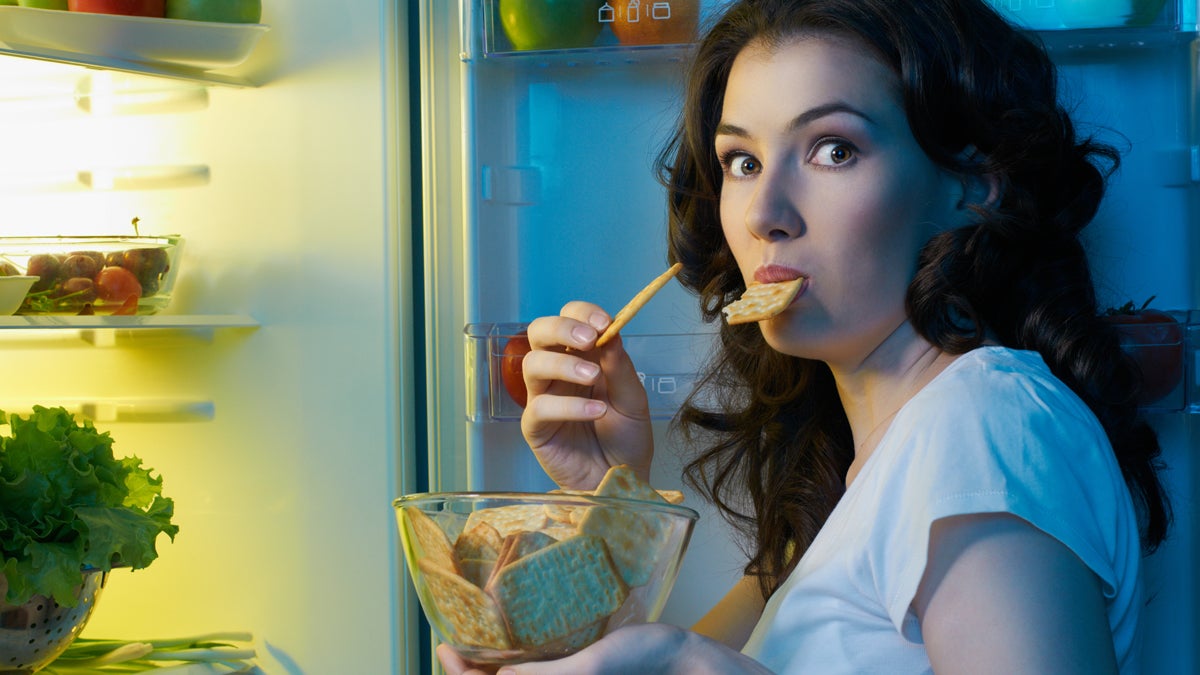Late-night snacking reduces alertness in the sleep-deprived, Penn study finds
 Photo via ShutterStock) " title="sslatenightsnackx1200" width="1" height="1"/>
Photo via ShutterStock) " title="sslatenightsnackx1200" width="1" height="1"/>
(Photo via ShutterStock)
It might be best to rethink those late-night treats — and not just because they add to the waistline. Researchers at the University of Pennsylvania are beginning to find that after-hours eating has other negative effects, too.
The team evaluated about 40 sleep-deprived participants who either snacked or refrained from eating from 10 p.m. on with a battery of tests for alertness and concentration in the middle of the night.
“What we found was that the subjects who fasted, who weren’t allow to eat those late-night calories, those subjects performed better,” said Andrea Spaeth, a postdoctoral fellow at the University of Pennsylvania and lead author of the work. The research was presented on Sunday at a sleep research meeting in Seattle.
There was no difference in working memory or general cognitive ability, but snackers posted slower reaction times and had about twice as many short lapses in attention as those who were just allowed water.
“These are the kinds of things that can cause a car crash,” said Penn medicine professor David Dinges, who helped author the study. “You suddenly basically are having a micro sleep for a second or two and you’re not maintaining vigilance. You lose muscle tone input to the steering wheel, and the car’s off the road in a second.”
The researchers aren’t sure why calories entering the body seem to reduce alertness in the sleep-deprived — or if the same effects would occur if participants were eating vegetables.
In the experiment, volunteers in the food group were allowed free access to things like chips and cake. In previous work, Spaeth found that late-night eaters consume about 500 calories, or a quarter of the daily food intake recommended for most.
Curiously, participants who didn’t snack weren’t aware they were more alert and performing better than their peers.
While many people who are accustomed to eating specifically to keep awake might be surprised by the results, Spaeth said, the finding jibes with previous studies in rodents. She cautioned that the human study is small and preliminary. But for now, the results suggest truck drivers burning the midnight oil, for example, should avoid the potato chips.
WHYY is your source for fact-based, in-depth journalism and information. As a nonprofit organization, we rely on financial support from readers like you. Please give today.

